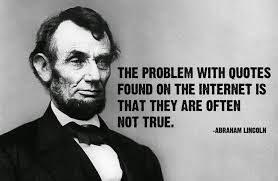How many times have you gotten into a fight with your sibling—you guys were both present for the conflict—but when your parents asked you what happened, you both had different stories? This happens in history all the time, making it unreliable. History is the study of past events, usually relating to humans, or the past in general. In order to somewhat understand the past, historians have interviewed witnesses, analyzed artifacts, and made assumptions based on what they found. However, the true narrative of past times will never truly be known because events are altered due to inaccurate testimonials, decayed evidence, and unknown motives of historical figures.
To begin, the recountings of events provided by eyewitnesses are not reliable sources. Humans do not have perfect memory, and they tend to misattribute, forget, and add bias to to memories, purposefully or subconsciously. The National Institute of Health (NIH) describes, “As people grow older, changes occur in all parts of the body, including the brain. As a result, some people notice that they don’t remember information as well as they once did and aren’t able to recall it as quickly.” Because people become more forgetful as they age, the information that they provide about the past becomes less dependable. In addition, most information that is found from the past comes from witnesses of the event, and since these events tend to be older, that means that the witnesses are older too. Since older people are at a higher risk of memory loss, this amplifies the fact that their information is not the most accurate.
Not only do humans forget information, but they also fabricate information based on a number of factors, and most do it unintentionally. According to Harvard Health Publishing, studies have shown that, “Misattribution occurs when you remember something accurately in part, but misattribute some detail, like the time, place, or person involved…In your memory, your perceptions are filtered by your personal biases — experiences, beliefs, prior knowledge, and even your mood at the moment.” Since humans mix up certain details and make up the ones that they forgot, it is proven that the information disclosed from the witnesses cannot be assumed as entirely accurate. Overall, witness accounts are not foolproof sources of evidence due to the fact that humans forget, misattribute, and fabricate information, especially after periods of time.
Furthermore, evidence becomes less valuable and trustworthy over time. While there are artifacts from many years ago, they are not a reliable source. According to Senior Analyst at Palladium Magazine Ben Landau-Taylor and Founder and President of Palladium Magazine Samo Burja, “[T]oday we possess written fragments from only 13% of the ~2,000 ancient
Greek authors known to us by name. This does not account for the authors we do not know, and only a small portion of the 13% figure consists of complete works.” As historians have less than 15% of the accounts of ancient Greek authors, it is revealed that overtime, the records and writings of these authors were destroyed. Consequently, there are other unknown artifacts from the past that there is no knowledge of, meaning that there could be entire civilizations, wars and other events that will never be discovered. To conclude, discoveries and assumptions of the past may not be accurate, as the evidence of past events decompose as time goes on.
Lastly, the knowledge of the motives behind historical figures is incredibly important to the historical events, and they will never be known for sure. Since we will never live in their time period, we judge them based on the morals and rules that we live by today. For example, in the present day, Thomas Jefferson would be considered sexist because he wrote in the Declaration of Independence that all men should be created equal, without mentioning women. In the 21st century, this is considered sexist, but during his time period, he was just stating what he believed to be a fact (Lumen Learning). Since he lived in a different time period from us, it is much harder to put ourselves in his shoes to see where he was coming from with his actions. Clearly, humans in the present day add bias to historical motives and form an opinion on them with what we know today, instead of what they lived by in the past. Inevitably, doing this makes it almost impossible to know what the intentions of the people from the past were. To sum up, the inability for historians to refrain from presentism when examining important people from the past makes it harder to find their original intentions.
Although some people believe that history is certain and objective, it is clear that there will always be holes and inaccurate information. For example, even if it is known that something happened, the true motives behind how or why will never be found. A staggering statistic demonstrates how little humans know about the past. “History, as we know it, is a vast tapestry woven from the remnants of human civilization. Yet, it’s staggering to consider that roughly 97% of our history has been lost over time” (Cavkic). Considering all the information from the past that historians and scientists know is only about 3% of history, people really do not know much about the past. Furthermore, 97% of our history was lost, and almost certainly, will never be found. One could assume that within the 97% of information lost, there were ancient civilizations, places, animals, and much more that will never be known.
In summary, the destroyed evidence, unreliable witness statements, and uncertainty in regards to intentions of the people from the past, prove how there will always be blind spots in history. So, next time you look at your history textbook, think twice about the information in it. Do not believe everything you read, as it may not be true.








